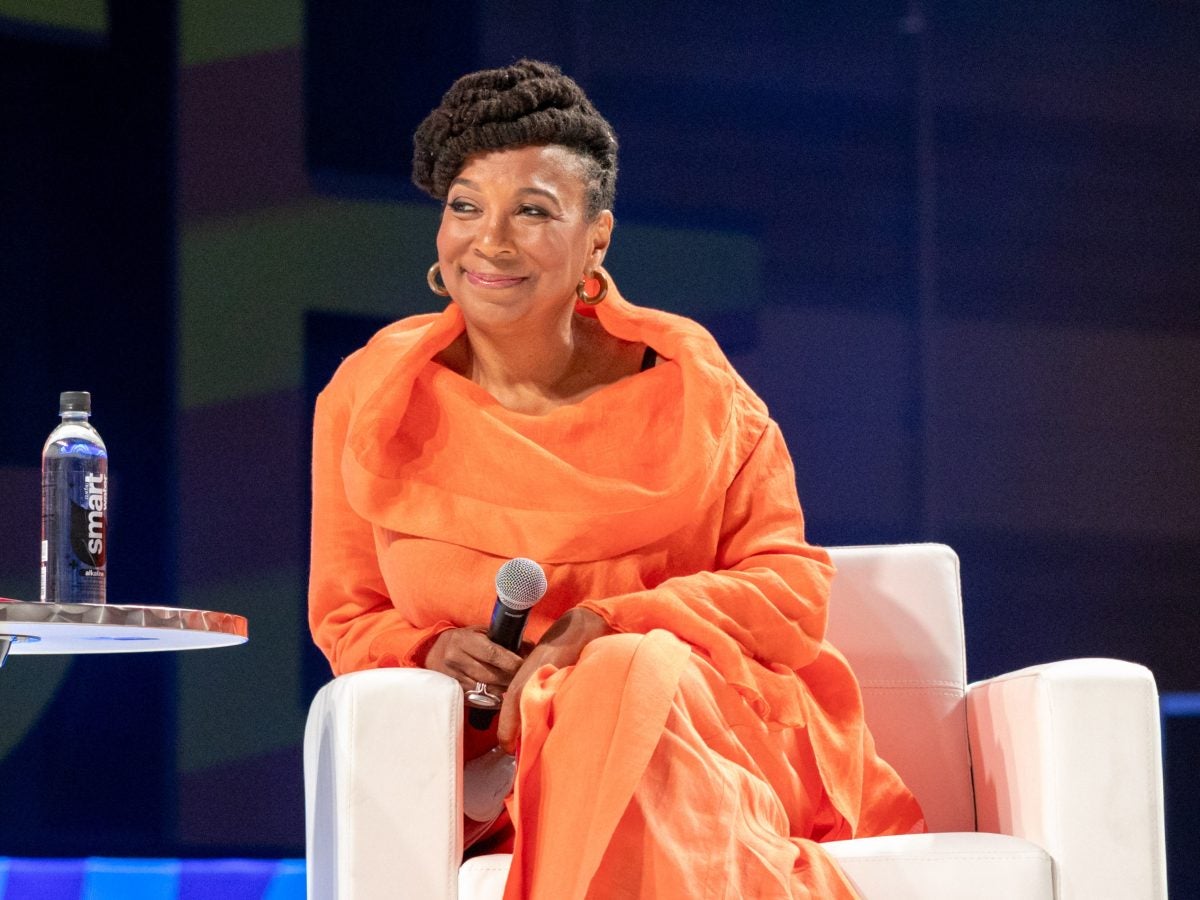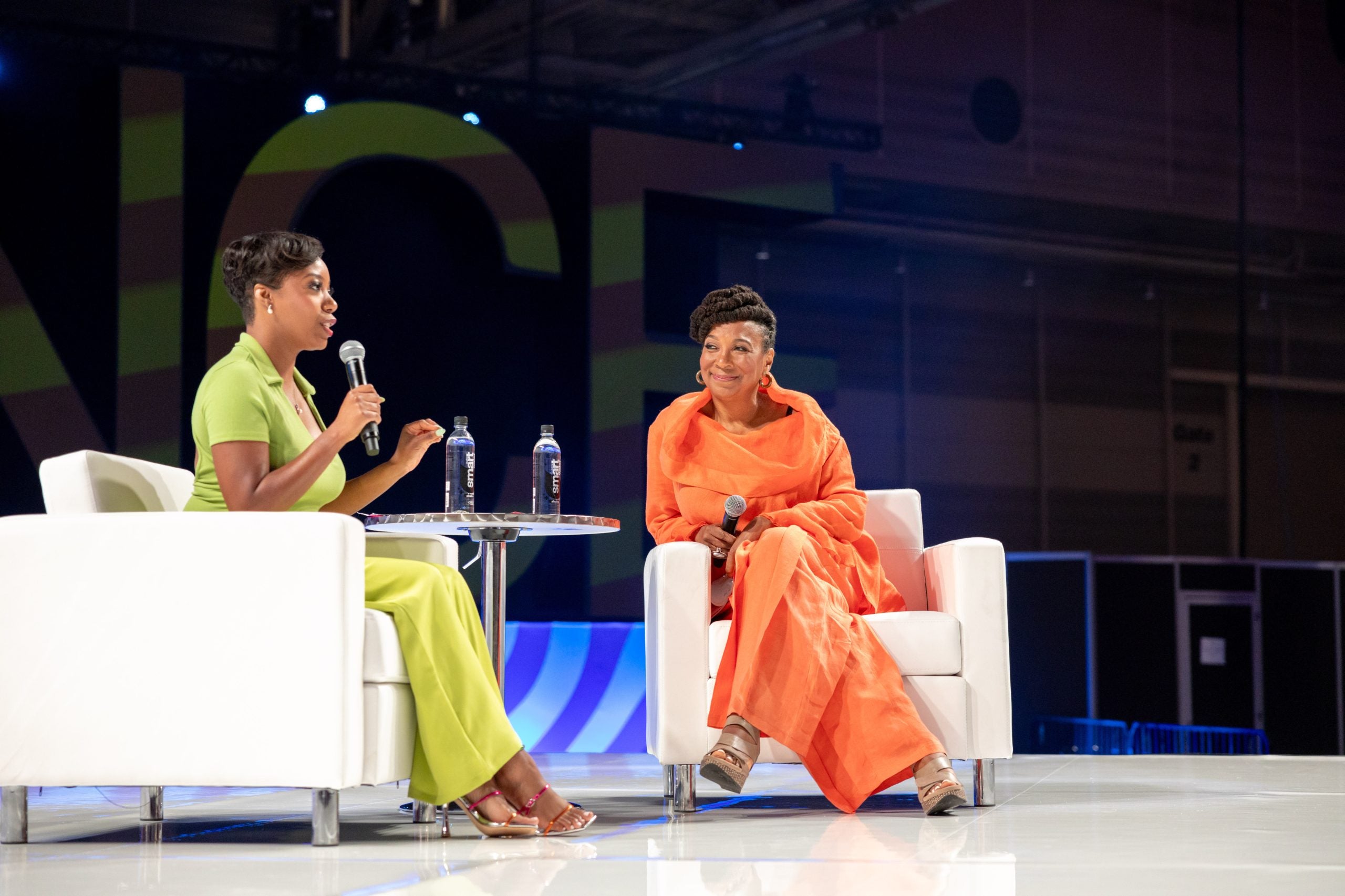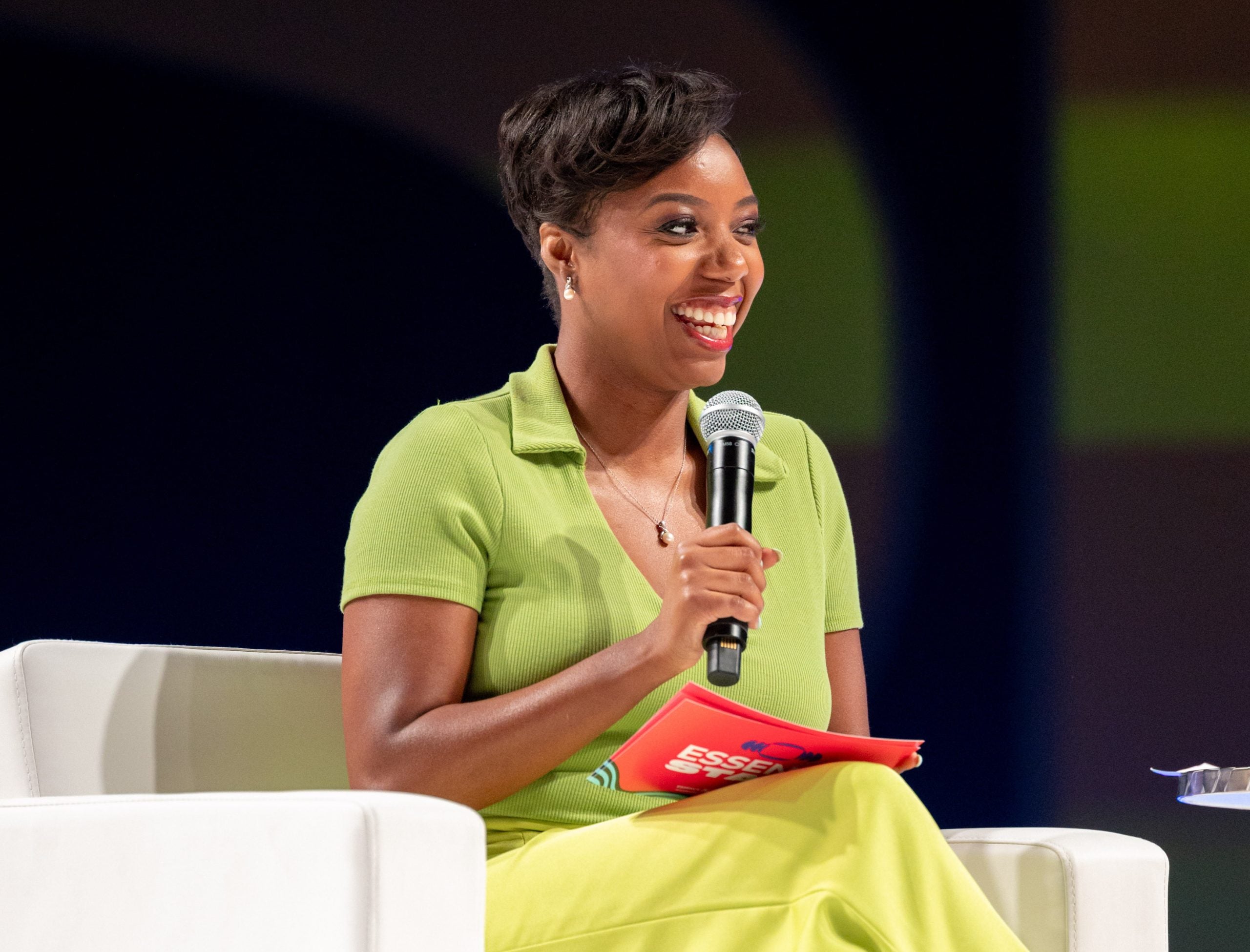
In a timely discussion taking place just one day after the Supreme Court ruled to end Affirmative Action, ESSENCE Senior News & Politics Editor Malaika Jabali sat with Civil Rights Activist and Critical Race Theory Scholar Kimberlé Williams Crenshaw to speak frankly about the movement to erase Black history and eliminate diversity, equity, and inclusion all over the country.
Appearing on the ESSENCE Stage on Friday July 30, Crenshaw observed the unfortunate irony of how relevant her pioneering work in critical race theory and intersectionality remains in the nation’s current climate.
“This conversation can’t be more timely, but it’s also frustrating that a multi-year campaign to eliminate one of the most significant measures that was ever invented to actually dismantle many of the barriers that kept African Americans from becoming all they could be has now been struck down as discriminatory,” she said. “But the real issue is that there’s been a campaign over the last two years to eliminate our ability to think about race and racism. To talk about race and racism. And of course, if you can’t think or talk about something, guess what? You can’t change it.”

Inviting the crowd to a quick exercise that presented several racially charged scenarios and called them to evaluate their perceptions of it, Crenshaw helped the audience to identify who among them may be a critical race theorist and what the now-controversial term truly means.
“I hope you understand the point is that critical race theory is a prism,” Crenshaw pointed out. “It’s how we’ve learned to interpret the world we live in. It’s how we know that we do not live in a colorblind world. It’s how we know that the health, wealth and other disparities that mark our lives are not a product of who we are – it’s a product of the world we get born into.”
“It’s a problem of the structures that we continue to operate in. It’s a product of the implicit biases. These are the things that the ‘anti-CRT’ people don’t want us talking about and don’t want us teaching our children about.”

This push for a shut-down of racial discourse and elimination of racial history has been in full force with book bans, most notably in schools across the southern U.S.
“If you actually look to see what they’ve done in 24 states, they have adapted legislation that makes it impossible for teachers to teach the truth about our history. Nearly half of public school children now go to school in a place where they cannot learn the actual history of the Tulsa massacre. They can’t learn the honest history of enslavement, of segregation,” Crenshaw noted.
“They don’t wanna talk about segregation as a product of white supremacy. They don’t wanna talk about internment as a product of racism. So they’re really going for our ability not only to change the present because of the past, they’re going after our ability to even remember the past as it was and to talk about it. So this has expanded to book bans. There are more book bans now than there ever have been. The majority of those books being banned are books that feature African-American and other people of color and LGBTQIA people.”
“When they try to take something away, that should tell you that it’s important,” Crenshaw said. “They don’t mess around with something that’s valueless. They’re trying to take away our ability to know in order it pass it on to our children to change our future.”